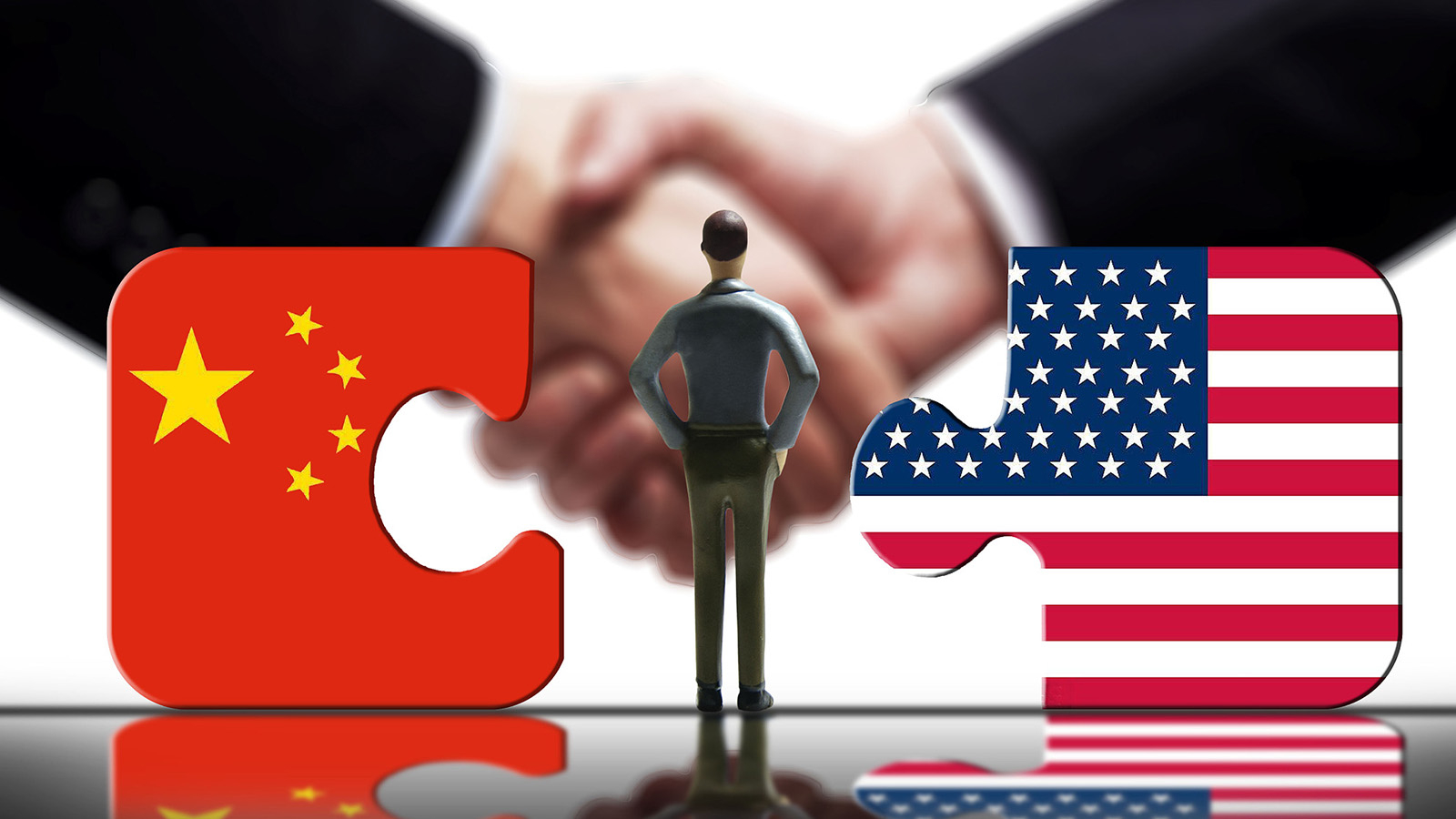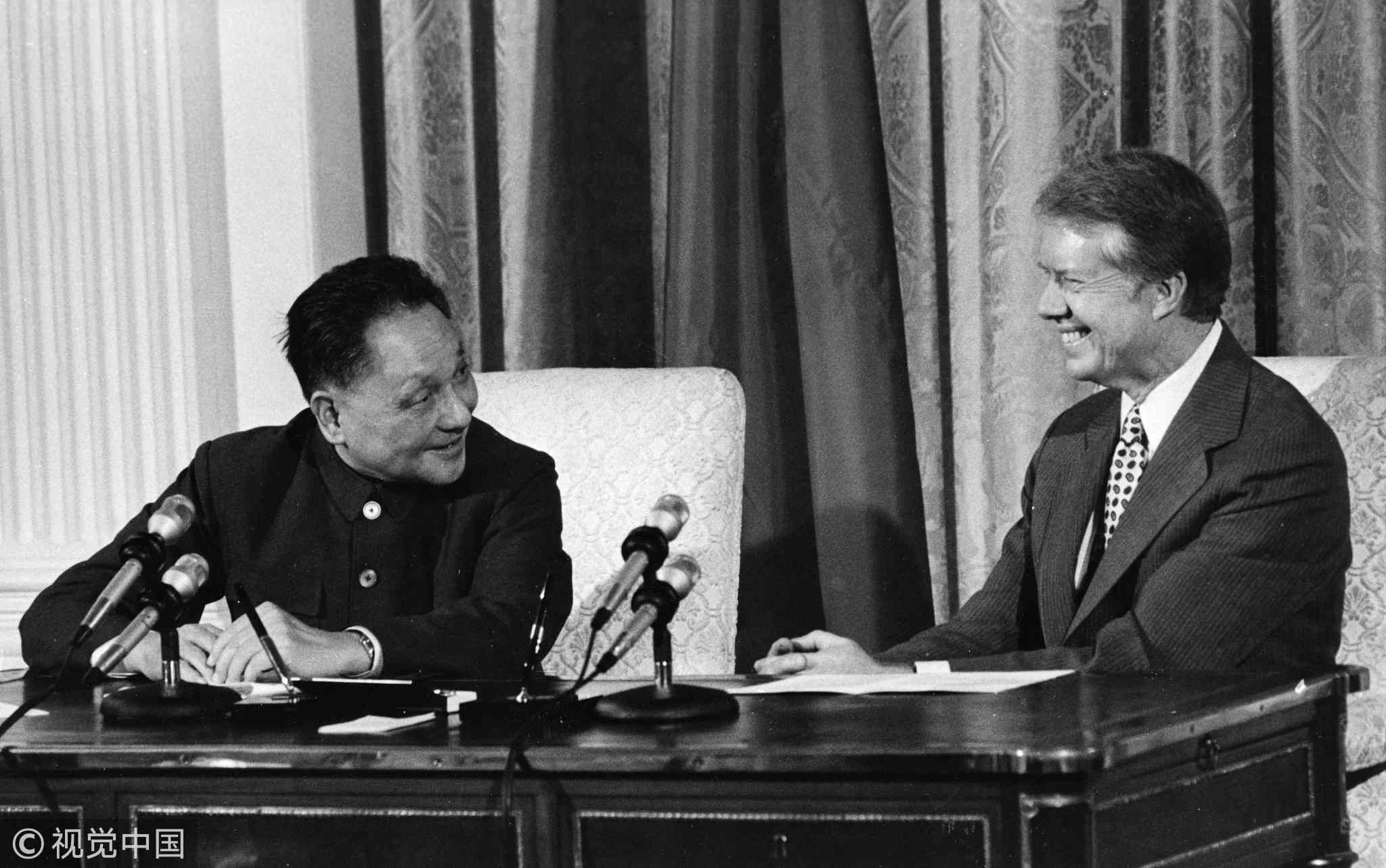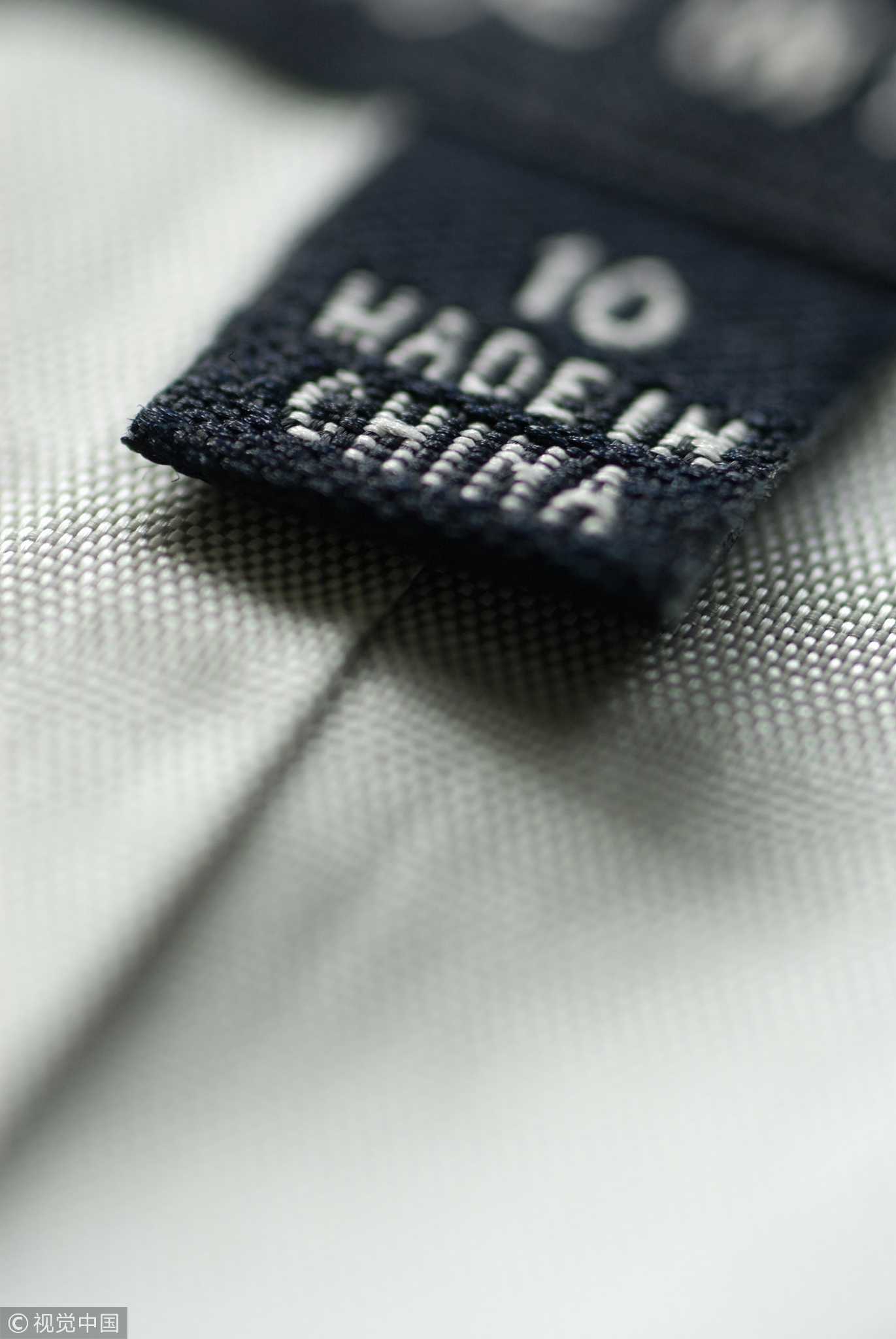
Opinions
22:11, 02-Jan-2019
Opinion: Sino-U.S. cooperation reflects China's wisdom
Updated
21:38, 05-Jan-2019
Zhang Nan

Editor's note: Dr. Zhang Nan is a researcher at the College of Comparative Law, China University of Political Science and Law. The article reflects the author's opinion, and not necessarily the views of CGTN.
January 1, 2019 marked the 40th anniversary of the establishment of diplomatic relations between China and the United States. The U.S.-China Agreement on Cooperation in Science and Technology (the S&T) was signed by U.S. President Jimmy Carter and late Chinese leader Deng Xiaoping on January 31, 1979.
This agreement was designated to renew every five years. Since then, China and the U.S. started to cooperate massively in agriculture, business, defense, energy, public health, land and resources, transportation, environmental protection and nuclear technology.
Now, let us ride a time machine and fly back to 1979. The initiation of the cooperation in technological field was a win-win action for both nations.
China had just opened-up and was eager to learn from the technologically more advanced nations and willing to build factories and provide substantial human resources for manufacturing.
The U.S. wanted to transfer and license their less innovative technology to China and obtain fruitful monetary rewards. Meanwhile, American entrepreneurs and enterprises enjoyed a great deal of preferential policies regarding the use of land, tax deductions, more competitive labor cost, skills and warm receptions throughout China.

Late Chinese leader Deng Xiaoping and former U.S. president Jimmy Carter during the signing of the U.S.-China Scientific and Technological Cooperation Agreement and a cultural agreement at the White House, U.S., January 31, 1979.
Late Chinese leader Deng Xiaoping and former U.S. president Jimmy Carter during the signing of the U.S.-China Scientific and Technological Cooperation Agreement and a cultural agreement at the White House, U.S., January 31, 1979.
In reality, very few complaints about technology transfer were filed in the Chinese judicial system that proves the ongoing technological cooperation was mainly satisfactory to the relevant parties.
Furthermore, this is the reason why the U.S.–China Agreement on Cooperation in Science and Technology has been renewed continuously every five years over the last four decades.
It is worth noticing that this cooperation does not only benefit the two countries, it also benefits the consumers and increases the quality of their lives with affordable prices, and good quality products and services.
In Europe, the U.S., Africa or other parts of the world, from children's books to Apple products, we can often find "printed in China" or "assembled in China" on the packaging.
China is catching-up with the developed world. In the last 40 years, adopting the right policies and encouraging the diligent working spirit of Chinese people, China has seized the tide of globalization and the technological revolution.

A label of "Made in China" /VCG Photo
A label of "Made in China" /VCG Photo
Now, if we drive the time machine further back to 2000 years ago, we will find that the Chinese tradition of development was never antagonism. Confucius said "How happy we are to have friends from far!" in the very beginning of his classic book The Analects of Confucius.
Our ancestors passed on the wisdom and intellectual heirlooms that development, happiness and enrichment are never a matter of one country, but an aromatic fruit between different people and different nations.
At the beginning of this New Year, I see more and more positive measures implemented to protect intellectual property right holders. For instance, the IPR Court of Chinese Supreme Court came into effect on the first day of 2019, and the draft of the new Foreign Investment Law is seeking public opinion.
I have faith that this year the intellectual property right holders will witness their creativity and originality being better protected.
(If you want to contribute and have specific expertise, contact us at opinions@cgtn.com.)

SITEMAP
Copyright © 2018 CGTN. Beijing ICP prepared NO.16065310-3
Copyright © 2018 CGTN. Beijing ICP prepared NO.16065310-3